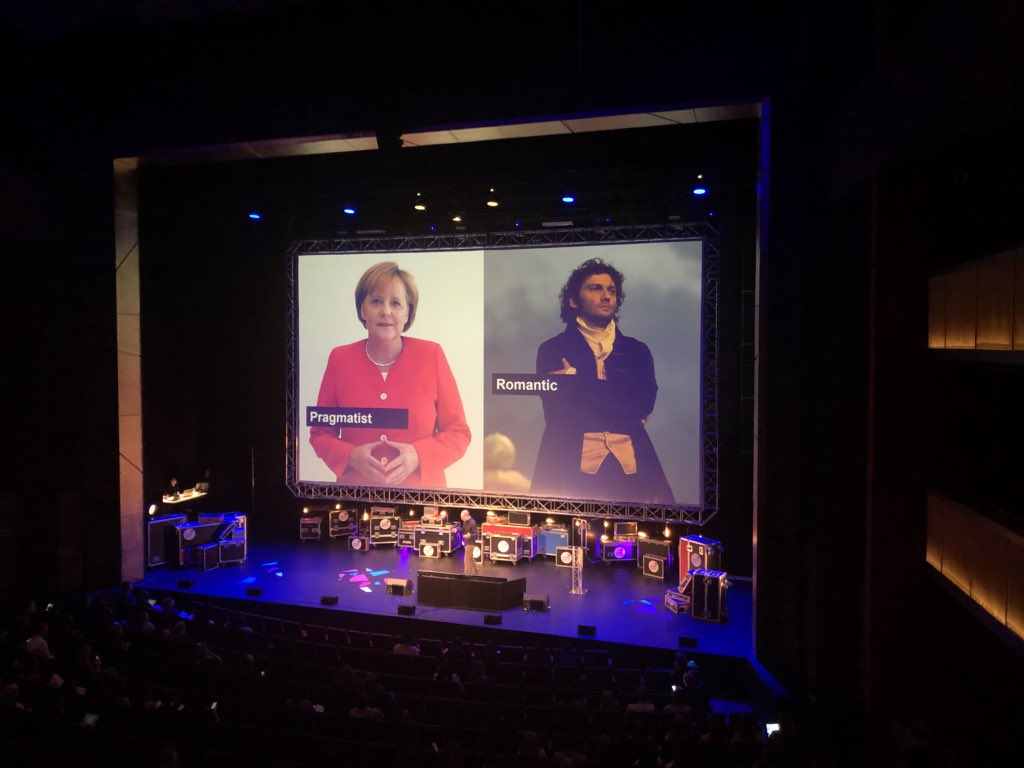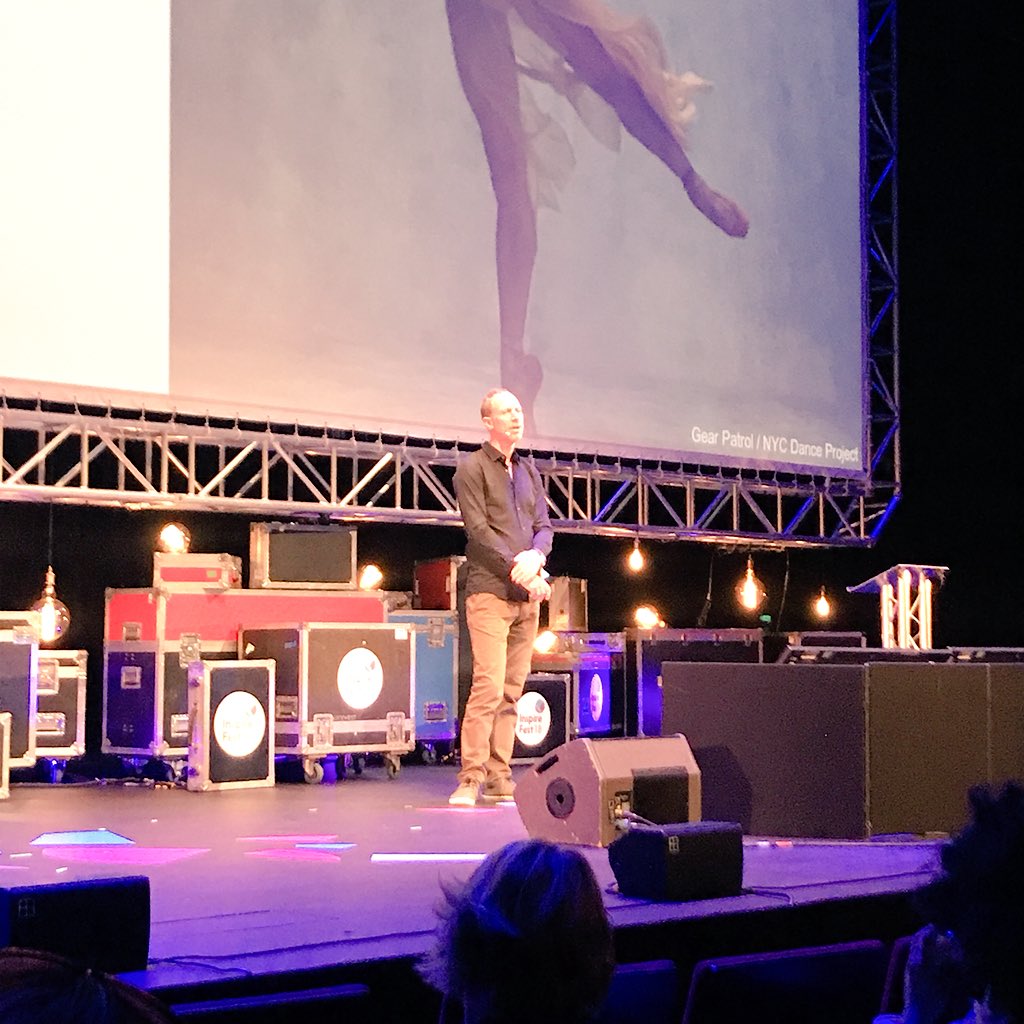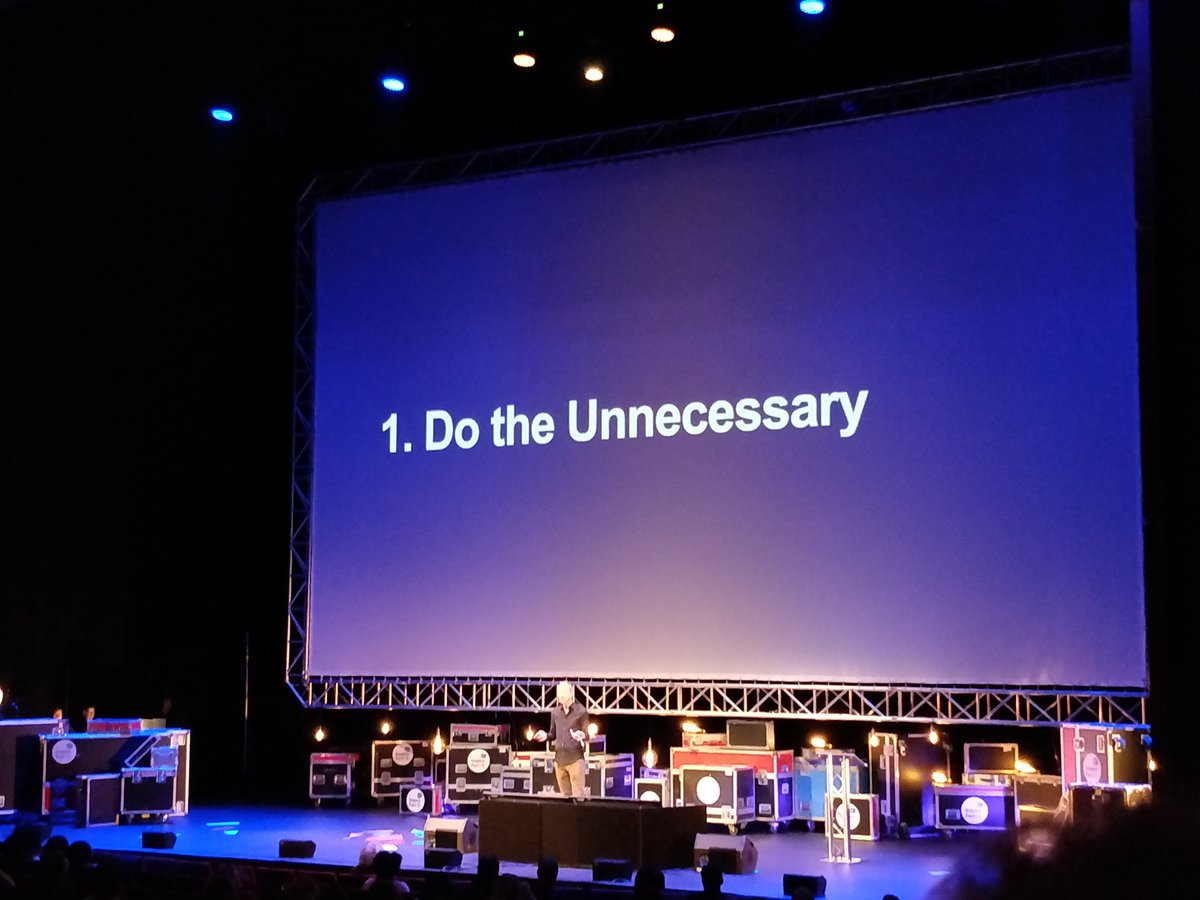What Will It Mean to Be Human in an Age of Machines?
During the first day of Inspirefest 2018, in Dublin Tim spoke about the importance of living and working beautifully.

by Jenny Darmody
The Inspiresfest audience were prepped for two days of phenomenal speakers and inspiring panel discussions around all facets of STEAM, including automation, AI and the age of machines.
However, in the rapidly growing world of technology, connectivity and efficiency, it’s important to still go back to basics and look at what makes us truly human.
Because even in a world where automation is integrated into almost every aspect of life, humans will still exist, and it will be what makes us truly human that sets us apart.
That is the message that Tim Leberecht wanted to convey from the moment he walked onto the Inspirefest stage.
“I come to you from Berlin in Germany and my country can be characterised as this tension between two opposing forces: One is a stereotypical pragmatist who is efficient and the other one is a soul-searching romantic,” he said.
He said he believes the world would be a better place if we had more romance in our lives and that it must created and found through business. But, as a picture of US President Donald Trump appeared on the screen behind him, he added that “it’s not easy.”
Leberecht spoke about what we all know to be true. That the fourth industrial revolution is going to change everything.
He said there are two camps. In one camp, there are those who believe that if you can describe what you do in one sentence, your job won’t last much longer. In the other camp, are people who believe AI isn’t going to replace humans.
However, a word of caution from Leberecht: if society has become so obsessed with maximum efficiency, and if we’re not careful, we’re in danger of becoming smart machines ourselves.
He highlighted some examples of how human behaviour, including some of our most intimate actions, have become automated.
For example, Spreadsheets is an app that is designed to tell you if you’re good in bed, while an app called BreakUpText pretty much does what it says on the tin.
Leberecht used these as prime examples of how we are not only automating the more linear monotonous tasks in our lives, but we are automating that which makes us human.
“The great question is not whether machines will be able to think, the bigger question is: will we humans still be able to feel?
“Romance is what makes us human,” he said. “It’s the ultimate differentiator.”
As machines take our jobs and do them more efficiently, Leberecht said the only work that will be left for humans is the work that can be done beautifully.
Three romantic rules to live by
Once Leberecht had successfully convinced the audience about the importance of working with romance and beauty, he told them of three important rules to follow to become business romantics.
Do the unnecessary
The first rule involved a personal experience Leberecht had when he was part of a company that was going through a merger. As part of a rebrand strategy, the company was going to purchase 10,000 orange balloons for all of its staff.
Then, a decision was made to cut the balloons from the budget because they were deemed unnecessary and not mission-crictical. “When you cut the unnecessary, you cut everything,” he said.
Leberecht said the merger eventually failed, not because they got rid of the orange balloons but because they got rid of what he called ‘the orange balloon mentality’.
Create intimacy
Leberecht’s second rule was about creating intimacy. He said that even though we’re more connected than ever as a society, research shows that the average American has only one close friend.
“We check our smartphone 80 times a day – we’re more connected than ever,” he said. “But the opposite of loneliness is not togetherness, it’s not being connected: it’s intimacy.”
Leberecht said that we’re all craving to be treated as unique individuals, not algorithmic recommendations. “We don’t want personalised experiences, we want personal experiences.”
Suffer a little
The final rule on Leberecht’s list was that we all need to suffer – just a little. In the age of automation, we’re all looking for instant gratification.
But the reality is, we crave hardship and suffering to create enriched experiences that make us come alive and to do this we put ourselves through it by sky-diving or bungee-jumping or making a trip to IKEA.
“IKEA has perfected the art of making its customers suffer,” he said, citing how the seemingly simple task of assembling a piece of IKEA furniture is a great reminder of his own existential incompetence. And, while the audience found this nugget extremely relatable, the key message was not lost: Delayed gratification brings greater fulfilment.
Image: Liza Donnelly
Leberecht told us that these three simple rules will bring us into a new romantic era, one that will favour wandering instead of reacting, mystery instead of radical transparency and deep connections instead of connectivity.
From a business point of view, Leberecht also pointed out a return on investment. “If you don’t have romantics in your organisation then you’re not going to be truly innovative.”
He said if you want customers and employees to fall in love with you again and again, you have to give them more than just solutions to problems. You have to give them a sense of drama, intrigue and romance.
And, as the audience applauded Leberecht’s final thoughts about the importance of romance making us a little bit more human, Inspirefest founder Ann O’Dea summed up what everyone was thinking: “What he said.”
This article appeared originally on Silicon Republic.
Image: Conor McCabe Photography

